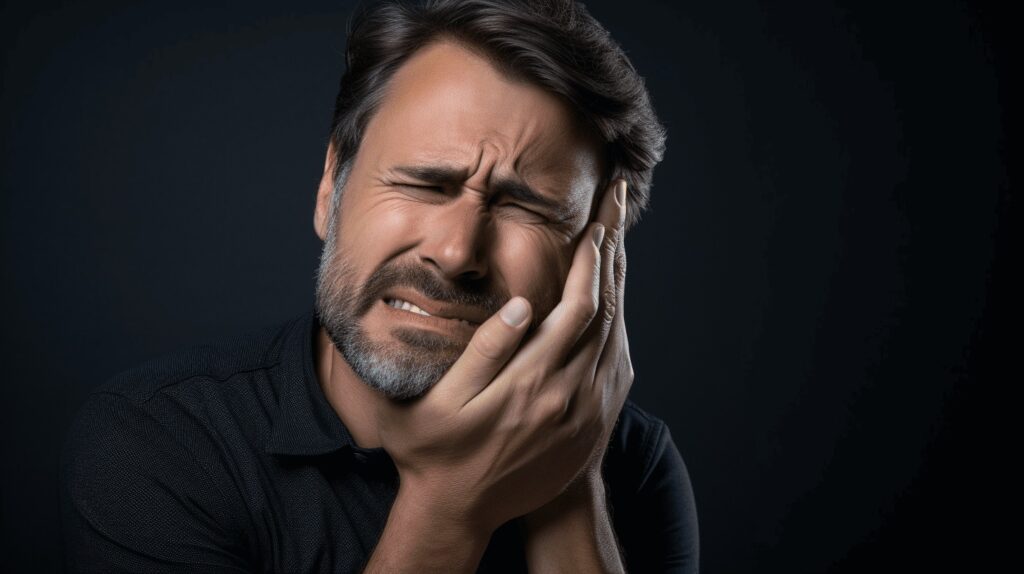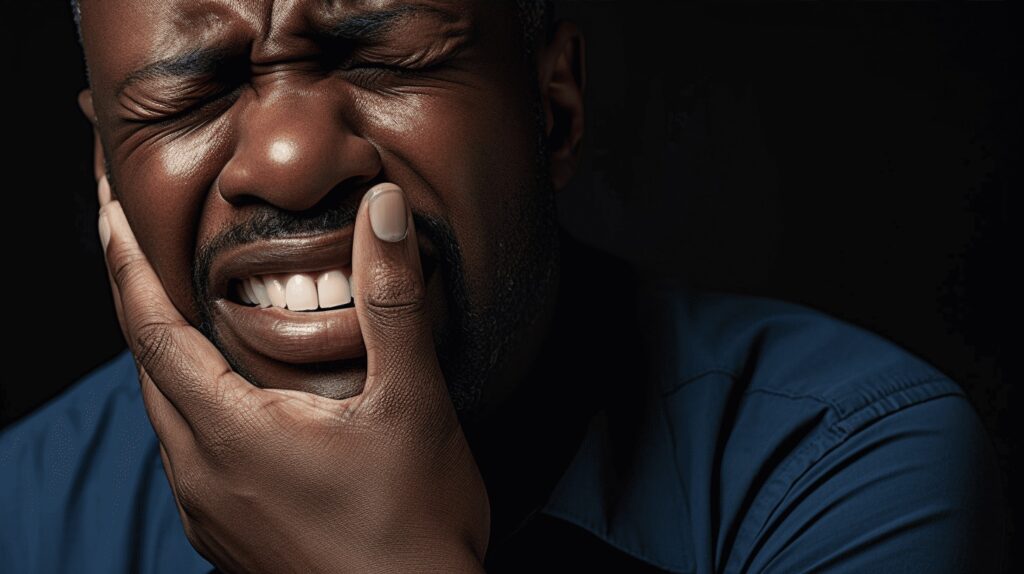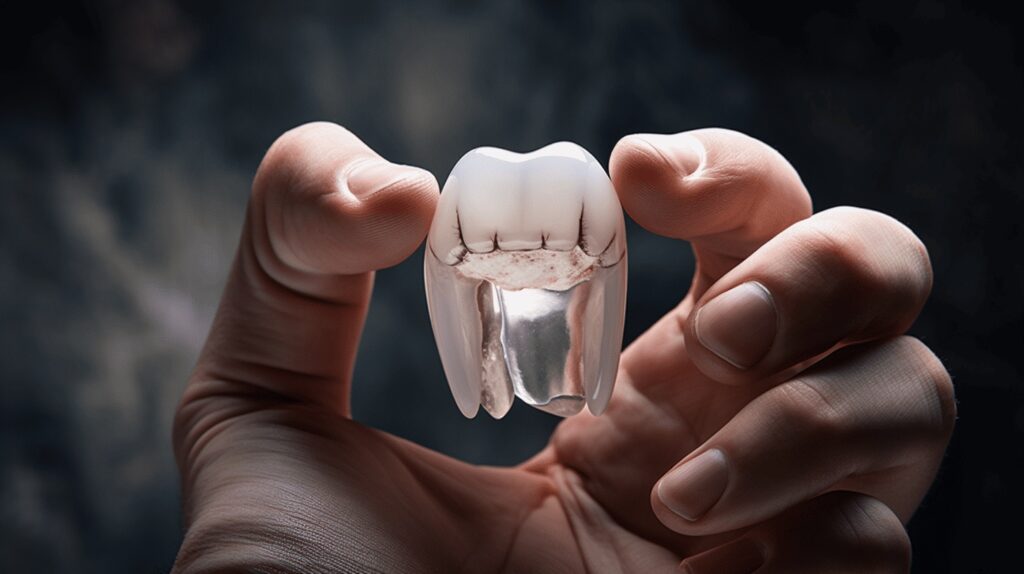Welcome! 👋 When it comes to dental emergencies, being prepared is half the battle. But, do you really know what constitutes a dental emergency, and how to handle one when it strikes?
Remember, the difference between losing and saving a tooth could be dependent on how swiftly you take action! In this article, we’ll dive deep into understanding dental emergencies, their common types, and the importance of timely intervention.
So, fasten your seatbelts, folks! We’re about to take a fascinating ride through the world of emergency dentistry. 🦷🚑
Table of Contents
Understanding Dental Emergencies
Have you ever been awakened by an unbearable toothache in the middle of the night? Or encountered a cracked tooth after accidentally biting down on a rock-hard candy? Suffice to say, dental emergencies can occur unexpectedly and often demand immediate attention. From falling and chipping a tooth at the playground to enduring an excruciating toothache that keeps you awake at night, dental emergencies account for 10% of all dental encounters. Understanding what constitutes a dental emergency can help you assess situations better and seek appropriate solutions.
Infected Teeth
When it comes to dental health, prevention is vital. Nevertheless, despite our best efforts, infections can occur. Infected teeth are not just challenging to bear; they can also lead to serious health problems if left untreated. While some infections might show clear signs, others can be sneaky, with symptoms not showing up until the infection has advanced. Trust us, it’s no fun dealing with agonizing pain and chronic discomfort.
Common indicators of infected teeth can include:
- Severe toothache
- Sensitivity to hot or cold
- Trouble chewing
- Swelling in the surrounding gums
Cracked Teeth
Next, let’s talk about another common issue in emergency dentistry: cracked teeth. One moment you’re munching on your popcorn, and the next, there’s a crack in your tooth. Whether it’s a minor chip or a significant crack, cracked teeth account for a substantial proportion of dental emergencies. Not only can a cracked tooth cause pain and discomfort, but it can also lead to bigger issues if not promptly addressed.
Here’s what to look out for:
- Pain when biting down
- Random tooth sensitivity
- Swelling of the gum around the affected tooth
Tooth Abscess
Moving on to something that sends shivers down even the bravest among us – tooth abscess. An abscessed tooth is an infection within a tooth that has spread to the root tip or around the root. This condition is usually associated with severe pain and is a clear call for emergency dentistry.
Symptoms of a tooth abscess include:
- Intense throbbing pain in the tooth or gum
- Sensitivity to temperature
- Fever
- Swollen lymph nodes
In conclusion, understanding dental emergencies can help you respond better and make an informed decision when you face one. Plus, it can save you from unnecessary pain and anxiety. Remember, when it comes to dental emergencies, time is of the essence, and prompt intervention is key. Seek immediate help from healthcare professionals equipped to handle such emergencies. After all, good oral health forms the cornerstone of overall health and well-being.
Common Dental Emergencies
No one can predict when a dental emergency will strike, but lack of knowledge shouldn’t keep you from acting swiftly to minimize pain and potential damage. This piece will outline the most common dental emergencies, what they entail, and the crucial steps you should take when one occurs. After reading this, you’ll be better equipped to handle these stressful situations effectively and promptly as you Seek Immediate Dental Treatment.
Cracked or Chipped Tooth
As it turns out, the most frequently encountered dental emergency is a cracked or chipped tooth, accounting for around 34% of all reported dental emergencies. A cracked tooth might be really painful and can lead to further dental complications if not tended to urgently. The moment you realize you have a cracked or chipped tooth, it’s crucial to rinse your mouth with warm water, and apply a cold compress to the area to reduce swelling. Avoid eating on the affected side to prevent further injury, and see a dentist as soon as you can.
Toothache
With nearly 12% of American adults reporting experiencing a toothache severe enough to consider it an emergency, toothaches are not to be taken lightly. An intense toothache can be a sign of significant underlying issues, such as infection, decay, or injury. Rinse your mouth with warm water, gently floss around the tooth to remove any food particles that might worsen the ache, and reach out to a dental health professional immediately.
Knocked-Out or Fractured Teeth
A knocked-out or fractured tooth is no minor issue. Immediate steps downplay the severity of the damage, hasten healing and increase chances of saving the tooth. Pick up the tooth by the crown, gently rinse off any dirt, reposition it back into its socket if possible, and get to a dentist right away. Do not hold the tooth by the root, as this could cause irreparable damage.
Abscesses
Oral abscesses are severe infections that occur around a tooth’s root or the space between your teeth and gums. They’re quite painful and can lead to more serious, life-threatening conditions if not treated promptly. Symptoms include fever, persistent toothache, sensitivity to hot and cold, swelling in the face or cheek, and a rush of foul-tasting fluid in your mouth followed by pain relief. If you suspect having an abscess, seek dental attention immediately.
Loose or Dislodged Teeth
Loose or misplaced teeth in adults is indeed not a normal occurrence. This is often due to an injury to the mouth or advanced periodontal disease. If it isn’t addressed promptly, you risk losing the tooth permanently. If you notice any loosening or misplacement of your teeth, arrange to see your dentist right away.
Taking note of the above can help anyone be better prepared for these frightening dental situations. Remember to act quickly, keep calm, and seek immediate dental treatment when such emergencies arise.
Prevalence of Dental Emergencies
It’s a tooth! It’s a nerve ache! No, it’s a dental emergency… Oh yes, you heard it right; dental emergencies are no stranger in today’s world. With more than just toothaches to worry about, they pose significant challenges to our daily routines and overall health.
To illustrate, let’s plunge into some statistics that highlight the prevalence of this issue. We’ll delve into aspects like dental-related emergency department (ED) visits, permanent tooth removal due to gum disease, and even the impact on lost school hours due to these emergencies.
Dental-Related Emergency Department Visits
Imagine this: In 2018, over 2 million dental-related ED visits were documented in the US alone. 😓 It’s quite a staggering figure, right? The pain and discomfort that come with dental problems often drive patients to consult in the emergency department.
Due to poor oral hygiene, accidents, or negligence, these visits aren’t just about a toothache. From inflamed gums to abscessed teeth, a diverse range of conditions pushes people to rush to emergency departments.
Permanent Tooth Removal Due to Gum Disease
What’s more disheartening is permanent tooth loss because of gum disease. You’ll be surprised to learn that almost half of the affected population, approximately 45.8%, had a permanent tooth removed due to gum disease. The unfortunate reality is that gum diseases are often highly preventable, signifying an urgent need for increased dental care.
Lost School Hours Due to Dental Emergencies
In a different perspective but equally concerning, dental emergencies have also impacted our children’s education. Paradoxically, your child’s tooth fairy might be stealing away their opportunity to learn! A startling estimate demonstrates that, on average, 34 million school hours are lost each year due to dental emergencies. 🎒🦷
It’s about time we realized that treating dental problems doesn’t just stop the pain, it literally saves smiles and keeps the pages of knowledge turning. If not for you, do it for the children; let’s strive to keep their sets of pearly whites, bright and healthy.
These insights reveal an evident problem – the prevalence of dental emergencies. However, remember it’s not about creating panic but encouraging preventive measures. Let’s aim at spreading smiles, one tooth at a time because everyone deserves a shiny grin that doesn’t come with pain. 😄
Impact of Gum Disease
Biting into an apple, what’s the first thing that comes to your mind? The delicious crunch, yes? Or perhaps the slightly sour juices fooling around your tongue? But have you ever considered what allows you to enjoy these simple pleasures in life? 🤔 That’s right – your gums!
These unsung heroes not only hold onto your teeth like a best friend but also protect them against harmful bacteria. Remember, they need as much care and love as your teeth. While brushing and flossing have become as habitual as drinking a cup of ☕, paying specialized attention to our gums often takes a back seat.
Bearing in mind the alarming fact that approximately 50% of all people over the age of 30 are suffering from some form of gum disease, it’s evident we’re unwittingly neglecting our gums. This statistic serves as a wake-up call for us to address the issue rather than brushing it aside (pun intended).
And no surprise there. After all, gum disease, or periodontitis, is a silent invader – creeping up on you, causing damage, often with little to no warning. Essentially, it’s inflammation of the gums, and if left unchecked, can lead to tooth loss. But don’t fret! It’s largely preventable, predominantly with good oral hygiene.
So, what impacts does gum disease have on your health? 🦷 Let’s delve deeper:
- Oral health: Needless to say, gum disease can lead to severe damage to your pearly whites.
- Overall Health: Surprisingly, gum disease may affect more than your oral health. Research has found associations between gum disease and various health problems such as heart disease, diabetes, and even dementia.
- Psychological Health: Let’s not discount the psychological impact. Receding gums and tooth loss can affect your appearance and self-esteem, causing anxiety and depression.
Let’s turn a new leaf; focus on giving our gums the care they deserve. Together, we can chew down this menace and continue to enjoy the gastronomical delights of life, bite after bite. After all, every smile begins with healthy gums! 😁
Pediatric Dental Emergencies
The journey of parenthood is draped with sprinklings of joy and occasional worries, one of those being your child’s dental emergencies. From toothaches to knocked-out teeth, minor bleeding to major injury, pediatric dental emergencies can spring up anytime, throwing your day into panic mode. Handled smartly, these situations can turn into cyclopedia entries for your child’s dental health journey. Today, we’ll focus on an emergency that’s common, yet often overlooked – syncope in dental practices.
Syncope in Dental Practices
As it happens, in the hustle and bustle of running a dental practice, where white coats swarm around dental chairs, with its distinct drilling sounds and unique dental smell, syncope, or fainting spells can become a sudden event. The hustle and bustle of a busy practice can sometimes mean this issue doesn’t get the attention it deserves.
Here’s a statistic that may raise an eyebrow: Pediatric dentists report that syncope is the most commonly seen medical emergency in dental practices. That’s right! It’s not the dramatic instances of intense bleeding or severe pain that tops the chart, but fainting spells.
Now, why does that happen? Fainting can occur due to a variety of reasons such as fear, anxiety, dehydration, or prolonged standing. In a dental scenario, the nervousness that comes with the anticipation of a dental procedure, coupled with these factors can bring about this fainting occurrence.
The crucial part we need to emphasize is awareness and quick response. Knowledge about what brings it on, signs to watch out for (like lightheadedness, dizziness, or a sudden pale complexion), and swift action can prevent a fainting episode or minimize its repercussions.
Pediatric dental practices need to be armed and ready to tackle syncope. Practices should:
- Be vigilant for signs of distress in young patients
- Have necessary medical equipment on hand, like oxygen cylinders and pulse oximeters
- Employ a team that is trained to handle such emergencies swiftly and confidently
So, remember, the next time you walk your little one into a dental clinic, be aware of these tell-tale signs. Take steps to ensure the child stays calm and hydrated, and alert the dental team of your child’s anxiety, if any. By doing so, you’ll be able to ensure a stress-free and ‘syncope-free’ dental visit for your child. After all, an emergency-free dental experience paves the way for long-term dental health and a smiling, happy child! 🌟
The Dangers of Delaying Treatment
There’s an old saying that goes, “A stitch in time saves nine.” This couldn’t be truer, particularly when it comes to oral health care. Delaying treatment for even non-life-threatening dental problems can pave the way for more serious issues down the line, transforming a minor inconvenience into a major health ordeal.
Typically, many of us tend to ignore small dental issues. 😬 Something as minor as tooth sensitivity or a little discomfort can be brushed off as merely inconsequential. Yet, these “harmless” issues, if left untreated, may lead to more severe problems, including tooth decay, gum disease, and even tooth loss.
To better appreciate the risks from delaying dental treatment, let’s consider three major consequences:
- Increased Health Risks: Tooth decay and gum disease, if not attended to promptly, can exacerbate pre-existing health conditions like diabetes and heart disease. Additionally, they can cause complications during pregnancy.
- Escalating Costs: Longer the delay, higher the cost. A minor cavity fill up costs significantly less than a root canal treatment that might become necessary if the decay worsens over time.
- The Domino Effect: One unhealthy tooth can lead to problems in adjacent teeth and throughout the mouth. It’s like the one bad apple that spoils the bunch.
However, sometimes, we can face Handling Dental Emergencies like severe pain or swelling that needs immediate attention. These cannot and should not be ignored. Swift action can significantly reduce harm and bring quick relief.
Prevention is, of course, the best medicine, but if minor dental issues arise, promptly addressing them is of the utmost importance. Remember, your smile says a lot about you, so try to keep it as healthy and happy as possible! 😃
So next time you think about putting off that dentist’s appointment, remember – a small investment of time today can prevent a whole lot of trouble tomorrow. Let’s not let minor dental problems yield major consequences down the road due to delay in treatment. Let’s make oral health a priority. Because “a stitch in time” isn’t just an old saying – it’s sound advice.
Conclusion
Navigating the landscape of dental emergencies can be stressful, but having the knowledge on how to act swiftly can make all the difference – not just for your oral health but for overall well-being too. Whether you’re dealing with a cracked tooth, an annoying toothache, or more severe conditions like tooth abscess, remember, fast and effective action is key!
But hey, you don’t have to maneuver these situations alone. The team at Wilshire Smile Studio is committed to providing a calming and reassuring environment, combined with expert assistance, to help you tackle any dental emergencies that come your way. We understand these situations can be draining both emotionally and financially. For this reason, we offer flexible financing options along with top-notch services at affordable prices.
We’re there for you through your preventative dental care journey too! A good oral health regime can significantly reduce the chances of encountering a dental emergency.
Quick to react, ready to care – that’s Wilshire Smile Studio for you. Feel free to reach out to us for any emergency dental care or other dental needs, we’re just a call away. After all, the world always looks brighter from behind a healthy, radiant smile, isn’t it?
Keep smiling and take good care of those pearly whites! 👍😊
Book your free consultation with us online or call (323) DENTIST (323-336-8478) today.
Frequently Asked Questions
1. What are some common emergency dental situations?
Some common emergency dental situations include severe toothache, chipped or broken tooth, knocked-out tooth, object stuck between teeth, and dental abscess.
2. What should I do if I experience a severe toothache?
If you experience a severe toothache, rinse your mouth with warm water, use dental floss to remove any food particles, and apply a cold compress to reduce swelling. Contact your dentist for an appointment as soon as possible.
3. What should I do if I chip or break a tooth?
If you chip or break a tooth, rinse your mouth with warm water, save any broken pieces, and apply a cold compress to reduce swelling. Contact your dentist immediately to schedule an emergency dental visit.
4. What steps should I take if my tooth gets knocked out?
If your tooth gets knocked out, hold it by the crown (avoid touching the root), rinse it gently with water, and try to place it back into the socket. If that’s not possible, keep the tooth moist by placing it in milk or saliva, and seek immediate dental attention.
5. What can I do if an object gets stuck between my teeth?
If an object gets stuck between your teeth, try to gently remove it using dental floss. Avoid using sharp or pointed objects. If you’re unable to remove the object, contact your dentist for help.









